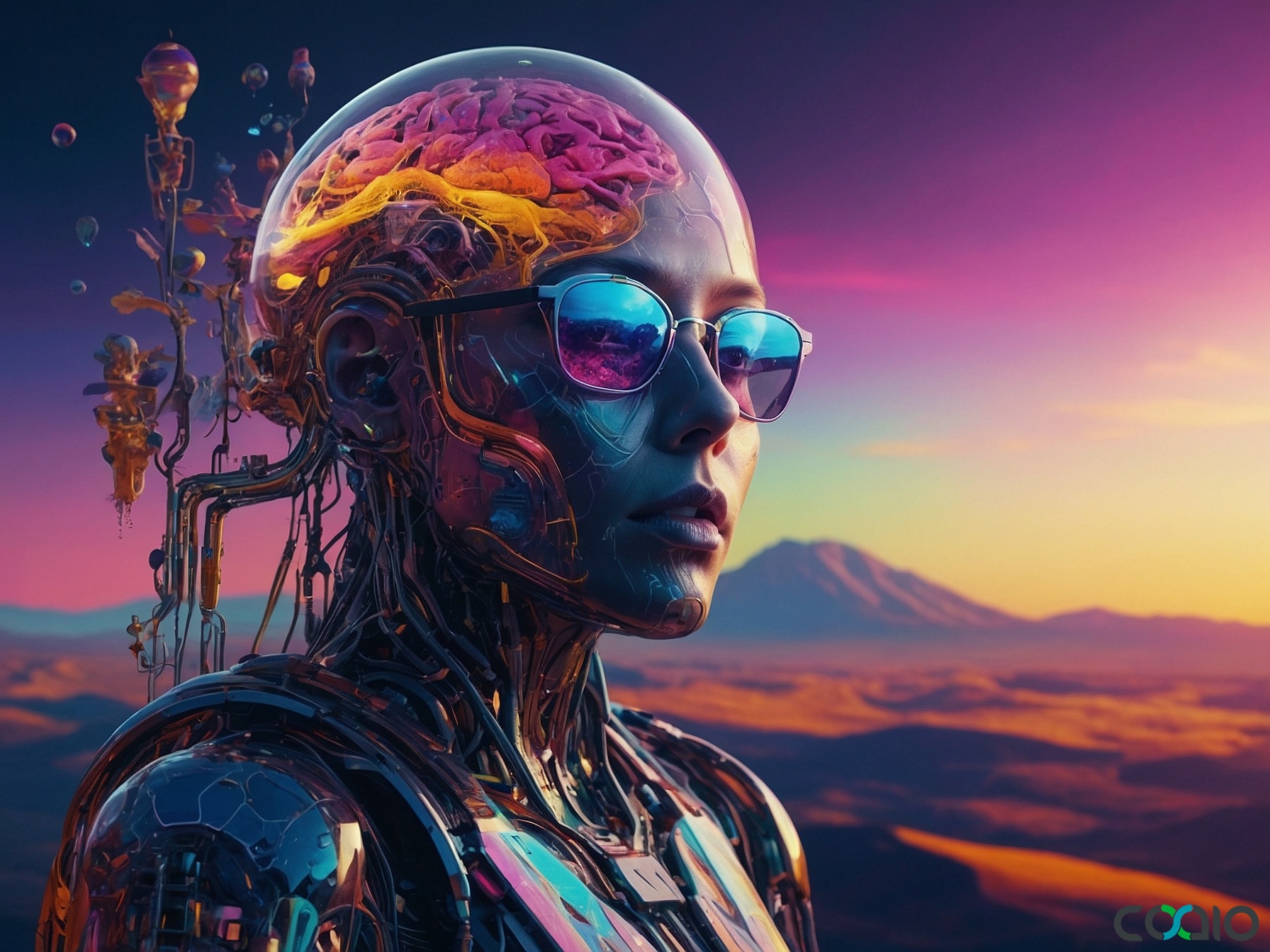
2025's Software Development Revolution: OWASP Updates, AI Leaps, and Industry Challenges
As we dive into the heart of November 2025, the software development landscape is buzzing with pivotal updates that could reshape how developers build, secure, and scale applications. From longstanding security concerns to groundbreaking AI enhancements and economic shifts in the tech sector, this week’s news highlights the ongoing evolution of the industry. Today’s date, November 15, 2025, marks a moment where developers, startups, and tech giants are grappling with both opportunities and risks. This article explores key stories from reliable sources like SD Times and TechCrunch, offering insights into how these developments could influence your projects and strategies.
The 2025 OWASP Top 10: Persistent Security Threats in Software Development
Security remains a cornerstone of software development, and the latest update from the OWASP Foundation underscores the vulnerabilities that continue to plague applications worldwide. After a four-year hiatus, the 2025 OWASP Top 10 list has been released as its first Release Candidate, highlighting critical issues that developers must address to protect their systems. The updated list includes familiar foes like Broken Access Control, Security Misconfiguration, Software Supply Chain Failures, Cryptographic Failures, Injection, Insecure Design, and Authentication Failures, among others. These concerns emphasize that while technology advances, basic security oversights persist, potentially leading to data breaches and financial losses for businesses.
For instance, Broken Access Control tops the list, indicating that improper enforcement of access policies can allow unauthorized users to manipulate sensitive data. This is particularly relevant for enterprises handling user data in cloud environments. According to the SD Times report published on November 12, 2025, these issues stem from rapid development cycles and the integration of third-party components, which can introduce hidden risks. Developers are urged to adopt proactive measures, such as regular code reviews and automated scanning tools, to mitigate these threats.
This update serves as a wake-up call for startups and growth-stage firms aiming to launch secure applications quickly. In an era where cyber threats are evolving, partnering with experts who specialize in risk identification and secure design can make all the difference. By leveraging such expertise, teams can ensure their software is not only functional but also resilient against common vulnerabilities.
OpenAI’s GPT-5.1: Enhancing AI Capabilities and User Control
Artificial intelligence continues to push the boundaries of software development, with OpenAI’s recent announcement of the GPT-5.1 family of models marking a significant milestone. Introduced on November 13, 2025, the new models—GPT-5.1 Instant and GPT-5.1 Thinking—offer users unprecedented control over ChatGPT’s personality, tone, and style. This update builds on earlier features, refining preset options and adding more customizable settings, which could revolutionize how AI is integrated into everyday applications.
According to SD Times, these enhancements allow developers to tailor AI responses for specific use cases, such as customer service bots that adopt a professional tone or creative tools that mimic human-like brainstorming as detailed in their article. For software developers, this means more precise AI integrations, reducing the need for extensive fine-tuning and enabling faster prototyping. The GPT-5.1 models also promise improved efficiency, with lower inference costs, which could lower barriers for smaller teams experimenting with AI-driven features.
This leap in AI technology highlights the growing demand for intelligent, adaptable software solutions. As developers incorporate these tools, they must balance innovation with ethical considerations, ensuring that AI systems are transparent and bias-free. The ability to customize AI personalities could lead to more engaging user experiences, but it also raises questions about data privacy and model training practices.
Leaked Documents: OpenAI’s Financial Ties with Microsoft
In a revelation that sheds light on the inner workings of AI partnerships, leaked documents have exposed the financial arrangements between OpenAI and Microsoft. Published by TechCrunch on November 15, 2025, these documents detail the revenue-sharing agreement and inference costs associated with their collaboration as reported here. This leak provides a rare glimpse into how major tech players monetize AI technologies, revealing that OpenAI has been paying Microsoft substantial sums for cloud infrastructure and computing resources.
The disclosures underscore the high costs of maintaining cutting-edge AI models, including expenses related to data centers and energy consumption. For software developers and startups, this highlights the challenges of scaling AI projects without deep pockets. It also prompts discussions about the sustainability of such partnerships, as reliance on a single provider like Microsoft could limit innovation and increase vulnerabilities in the supply chain.
This news is a timely reminder of the financial intricacies in software development ecosystems. As AI becomes more integral, understanding these dynamics can help businesses negotiate better deals and avoid over-dependence on proprietary systems.
The Open Source Debate: US-China AI Competition
The global race for AI supremacy took center stage with comments from Databricks co-founder Andy Konwinski, who argues that the United States must embrace open-source technologies to counter China’s advancements. In an article from TechCrunch on November 14, 2025, Konwinski warns that the U.S. is losing its edge in AI research due to restrictive policies and a lack of collaboration as outlined in the piece. He advocates for open-source frameworks to foster innovation and knowledge sharing, which could accelerate development and reduce costs for global developers.
This perspective is particularly relevant in software development, where open-source tools have long been a driving force. By adopting such approaches, developers can access community-driven resources that enhance security and interoperability. However, the debate also touches on geopolitical tensions, with concerns about intellectual property and data security in an era of increasing cyber threats.
For the software community, this call to action emphasizes the need for balanced strategies that promote both competition and cooperation. As AI evolves, open-source initiatives could democratize access, allowing smaller firms to compete on a global scale.
Tech Layoffs in 2025: A Wave of Restructuring
The tech industry is facing another round of layoffs, as documented in a comprehensive TechCrunch report from November 14, 2025, which lists layoffs across Big Tech and startups throughout the year available here. Despite economic recovery signals, companies are streamlining operations, with cuts affecting roles in software development, engineering, and AI research. This trend, broken down by month, reveals a sector still grappling with post-pandemic adjustments and AI-driven automation.
These layoffs highlight the volatility of the job market, where rapid technological shifts can lead to workforce reductions. For developers, this means prioritizing skills in high-demand areas like AI security and cloud computing to remain employable. Startups, in particular, are feeling the pinch, as funding constraints force them to scale back ambitious projects.
This situation underscores the importance of strategic planning in software development. Companies that invest in efficient, cost-effective practices are better positioned to weather economic storms.
As we wrap up this exploration of 2025’s software development news, it’s inspiring to think about a future where innovative ideas can flourish without being bogged down by technical hurdles. Picture a world where founders, whether tech-savvy or not, can bring their visions to life effortlessly—focusing purely on creativity while experts handle the complexities. This mirrors a commitment to empowering startups through streamlined software creation, minimizing risks and maximizing efficiency, much like navigating a well-charted path through a dense forest of code and challenges.
About Coaio
Coaio Limited is a Hong Kong-based tech firm that specializes in outsourcing software development and building dedicated teams in Vietnam. We offer comprehensive services including business analysis, competitor research, risk identification, design, development, and project management, delivering cost-effective, high-quality software solutions for startups and growth-stage companies. With a focus on user-friendly designs and efficient tech management tailored for clients in the US and Hong Kong, Coaio helps you streamline your development process, reduce risks, and bring your ideas to market faster, allowing you to concentrate on what matters most—your vision and growth.
 English
English
 Français
Français
 Español
Español
 廣東話
廣東話
 中文
中文
 日本語
日本語
 한국어
한국어
 العربية
العربية
 Deutsch
Deutsch

